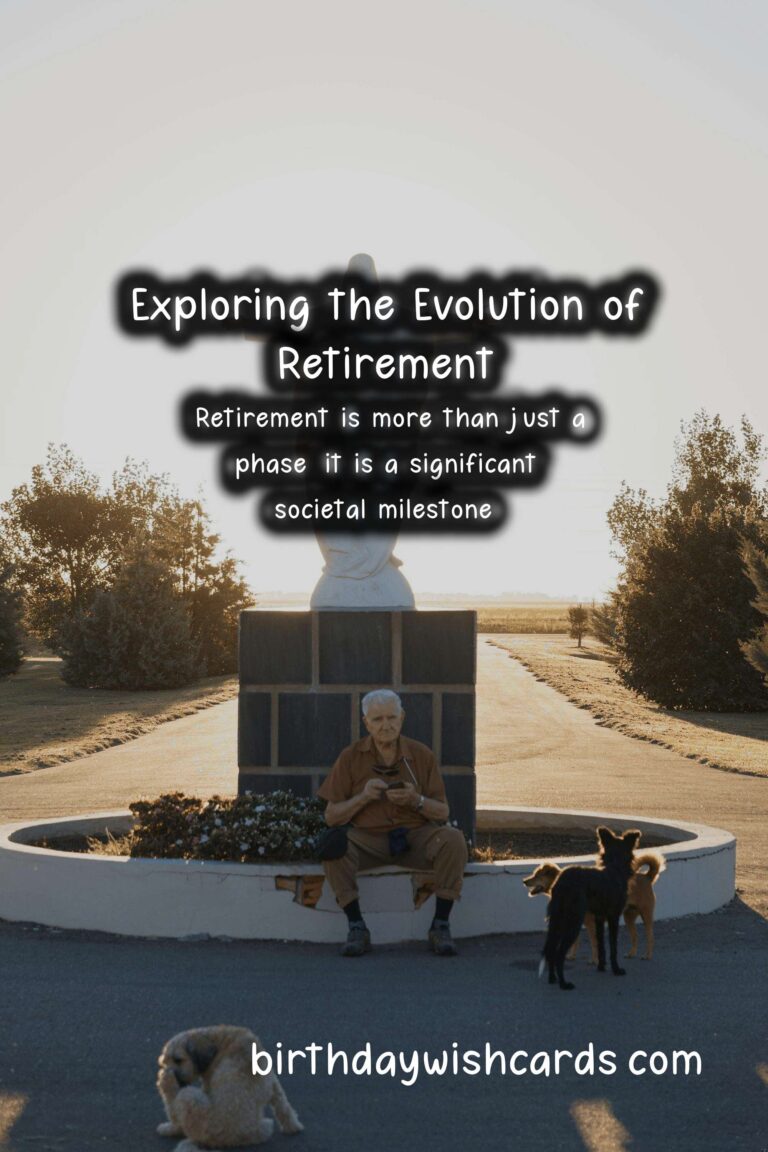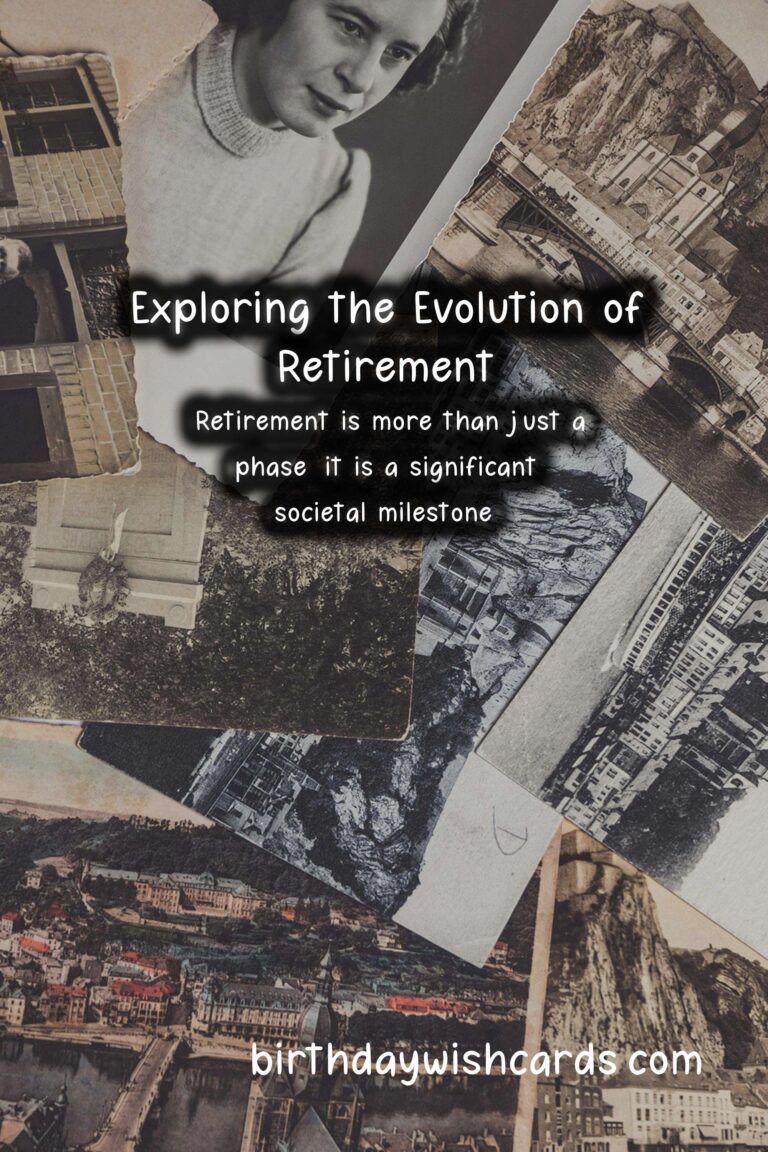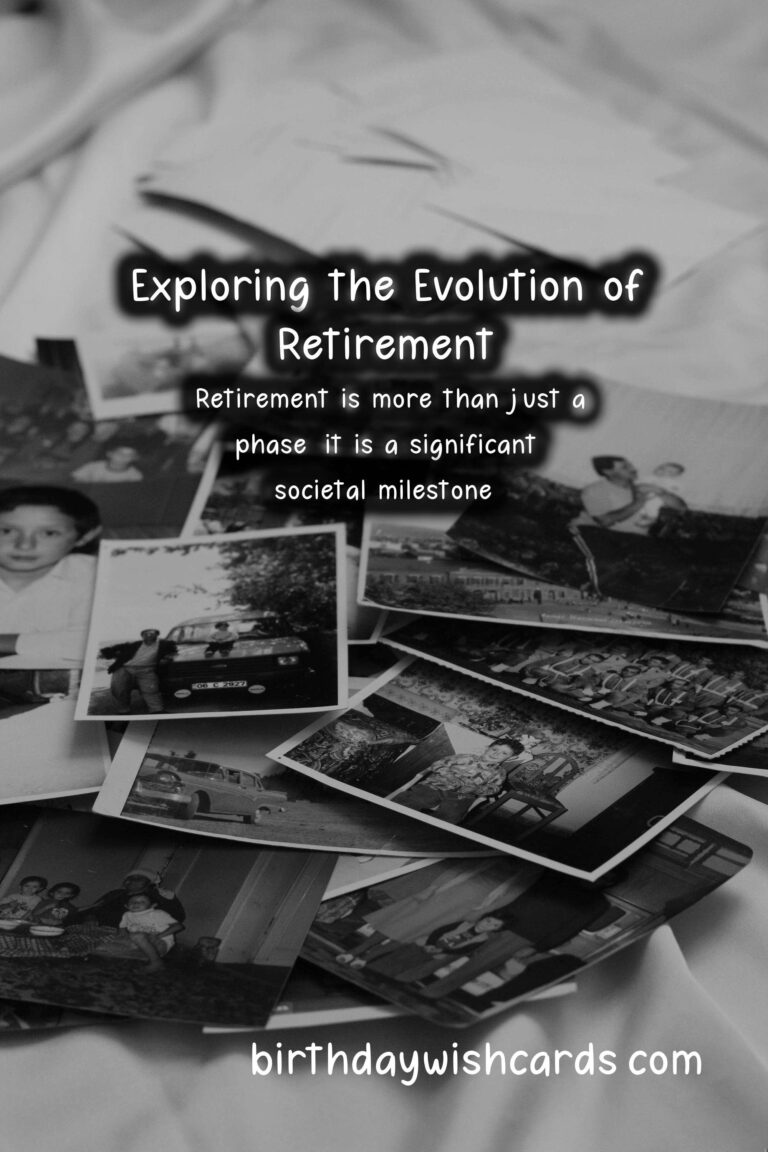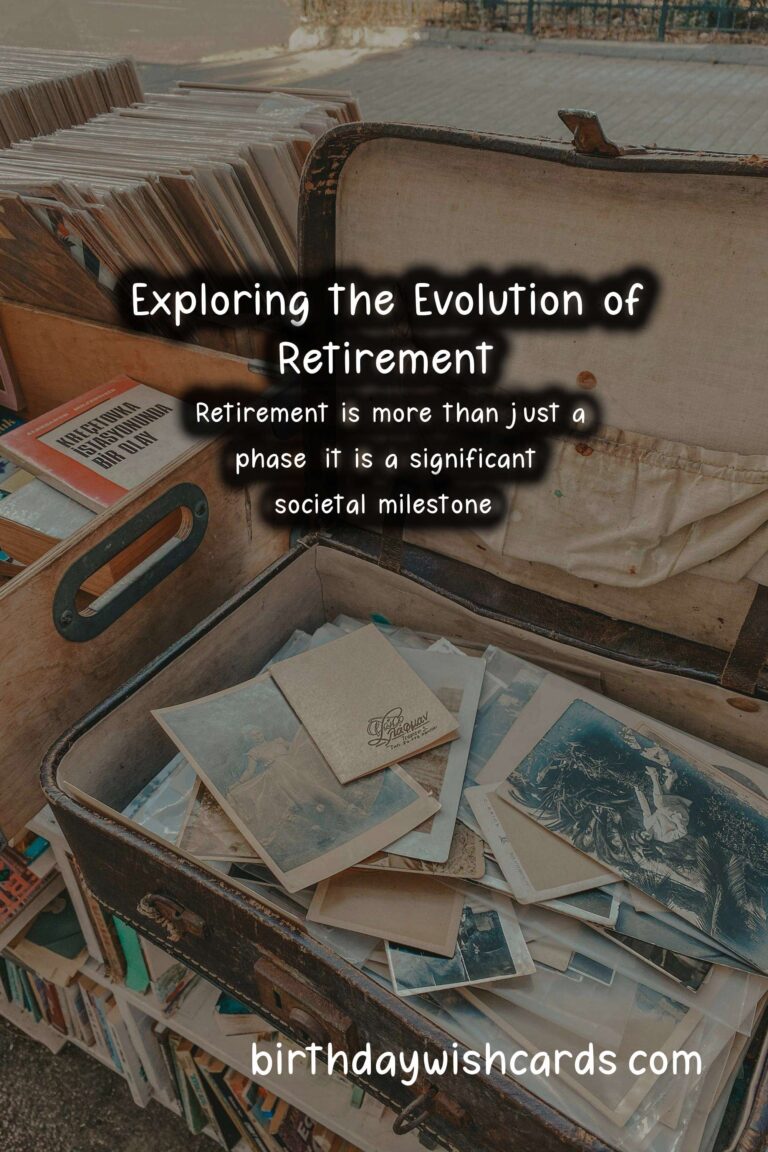
Retirement, a phase in life that is often eagerly anticipated, is not only a personal transition but also a significant societal milestone. This article delves into the historical context of retirement, its evolution over the years, and its current importance in today’s economy.
Understanding Retirement: A Brief Overview
Retirement is generally understood as the period of life when an individual stops working full-time, typically after reaching a certain age. However, the concept of retirement has emerged from a complex interplay of historical, economic, and social factors.
Historical Context of Retirement
The roots of retirement can be traced back to ancient civilizations. In ancient Rome, for instance, soldiers who completed their service received pensions that allowed them to live comfortably after their military careers. This early form of retirement was a recognition of service and loyalty.
During the Middle Ages, the concept of retirement began to shift. People did not retire in the modern sense; instead, they continued to work until death. Life expectancy was significantly lower, and the absence of social security systems forced individuals to remain in the workforce.
The Industrial Revolution and the Birth of Modern Retirement
The Industrial Revolution in the 18th and 19th centuries marked a significant turning point for retirement. As people migrated to cities for factory jobs, the structure of the workforce changed drastically. The labor market began to recognize the need for a formal retirement system.
The first social security system was introduced in Germany in the 1880s by Chancellor Otto von Bismarck. This initiative set a precedent for other nations to follow, leading to the establishment of pension schemes in various countries. In the United States, the 1935 Social Security Act paved the way for a structured retirement system, ensuring that citizens would have financial support in their later years.
Retirement in the 20th Century: An Evolution of Attitudes
As the 20th century progressed, the concept of retirement evolved further. The concept was often associated with rest and leisure, contrasting sharply with work culture that dominated earlier years. The idea that people would spend their retirement years in activities of leisure reshaped societal attitudes around aging.
Current Significance of Retirement
In today’s world, retirement holds significant importance in individual lives as well as in wider socio-economic contexts. With the advent of longer life expectancies and improved healthcare, many individuals now have the opportunity to enjoy decades of retirement.
Financial planning for retirement has become crucial, as people are encouraged to save early and invest wisely to prepare for their golden years. Retirement funds, pension plans, and investment portfolios have become standard parts of career planning.
Modern Trends in Retirement
There are numerous trends shaping the modern concept of retirement. One significant trend is the rise of the ‘phased retirement’ model, where individuals transition into retirement gradually rather than abruptly ceasing work.
Additionally, many people are choosing to pursue second careers or engage in part-time work during retirement, often to remain active and involved in their communities.
Conclusion
The history and significance of retirement outline a journey from ancient practices to modern financial planning. As society continues to evolve, so will the concept of retirement, bringing with it new challenges and opportunities. Understanding the past can empower individuals to navigate the future of their retirement successfully.
Retirement is more than just a phase; it is a significant societal milestone. The roots of retirement delve deep into our historical past. 












